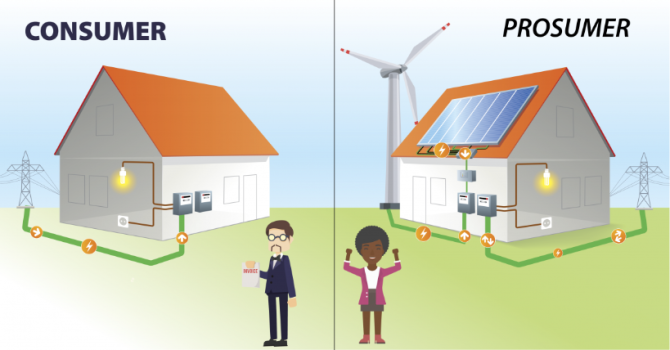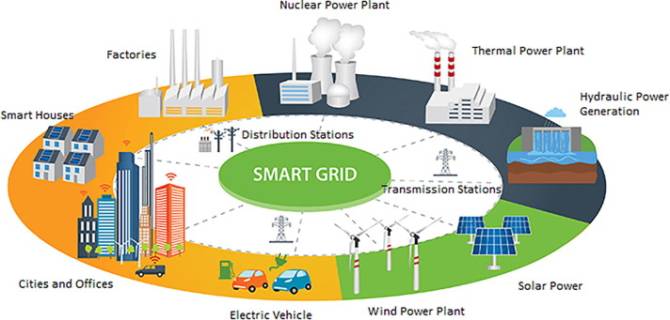Looking towards prosumer installations
In the context of renewable energy, prosumerism refers to individuals or households who produce their own renewable energy, such as solar or wind power, and consume it themselves or sell it back to the grid. This allows them to be both producers and consumers of energy, hence the term "prosumer."
Prosumerism is often seen as a way to increase the adoption of renewable energy and reduce dependence on traditional energy sources. It can also provide individuals and households with more control over their energy usage and costs, and can potentially provide economic benefits by allowing them to sell excess energy back to the grid.
Prosumerism can be adopted in a number of ways. One common approach is through the use of distributed generation, which refers to the production of electricity at or near the point of consumption, rather than at a centralized power plant. This can include technologies such as rooftop solar panels, small-scale wind turbines, or other forms of renewable energy generation.

These technologies can be connected to the electrical grid through a process known as net metering. In net metering, the electricity produced by the prosumer's renewable energy system is first used to power the prosumer's own appliances and devices. Any excess electricity is then fed back into the grid, and the prosumer is credited for this energy on their utility bill.
The exact details of how net metering works can vary depending on the location and the specific policies in place. In some cases, the prosumer may receive the full retail value of the excess electricity they produce, while in other cases, they may only receive a reduced rate. In some cases, the prosumer may be able to sell their excess electricity directly to other consumers through a process known as peer-to-peer (P2P) energy trading.
In addition to net metering, there are also other ways in which prosumers can be compensated for the renewable energy they produce. For example, some governments or utilities offer feed-in tariffs, which are fixed rates that are paid to prosumers for the renewable energy they produce. These tariffs can provide a guaranteed source of income for prosumers, and can help to make renewable energy production more financially viable.
Prosumerism can also be facilitated through the use of smart grids and other technologies that enable more efficient and flexible energy management. A smart grid is an electrical grid that uses digital technology to enable the two-way flow of electricity and information. This allows for the integration of renewable energy sources and the coordination of energy demand and supply in real-time.
For example, a smart grid can allow a prosumer's renewable energy system to automatically adjust its output based on the current demand for electricity on the grid. This can help to ensure that the prosumer's system is producing the maximum amount of electricity possible, and can also help to balance the overall supply and demand on the grid.

In addition to the technical aspects of prosumerism, there are also social and economic considerations. For example, the development of prosumer communities can help to foster a sense of ownership and engagement among individuals and households, and can facilitate the sharing of resources and knowledge.
